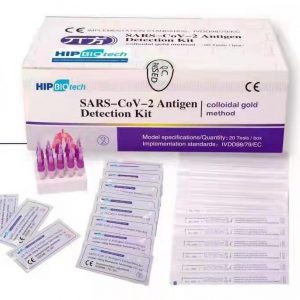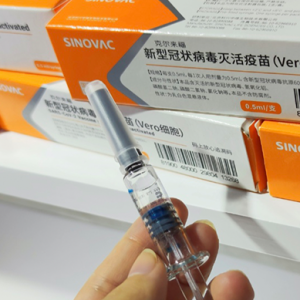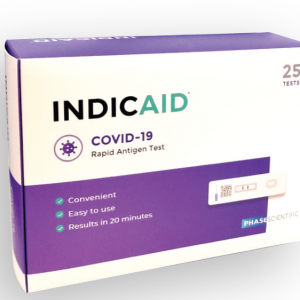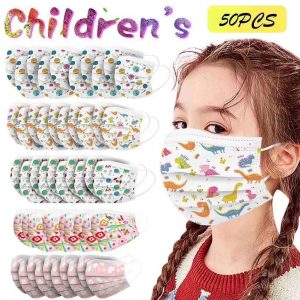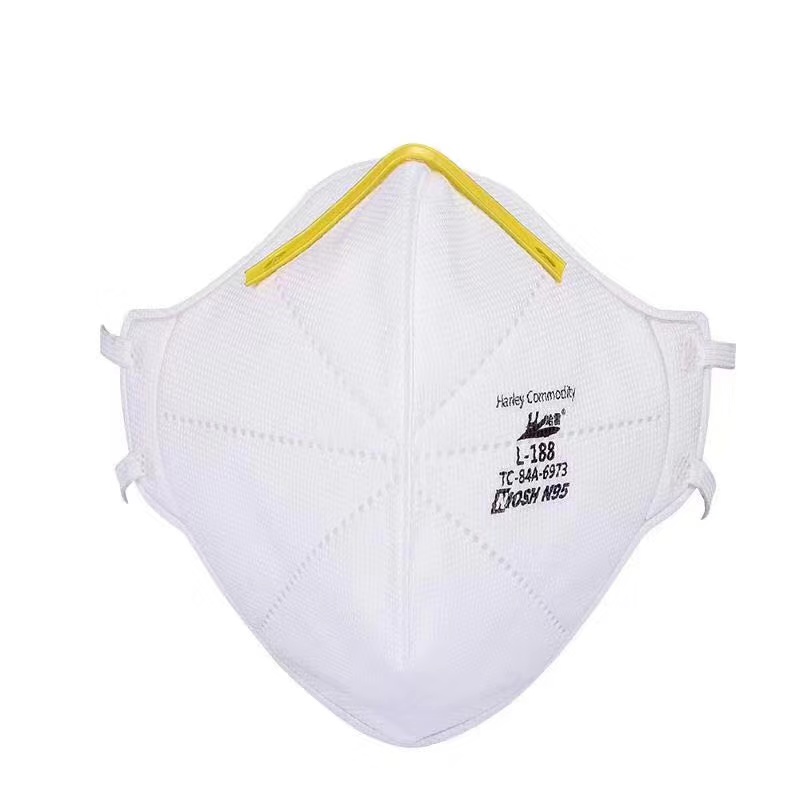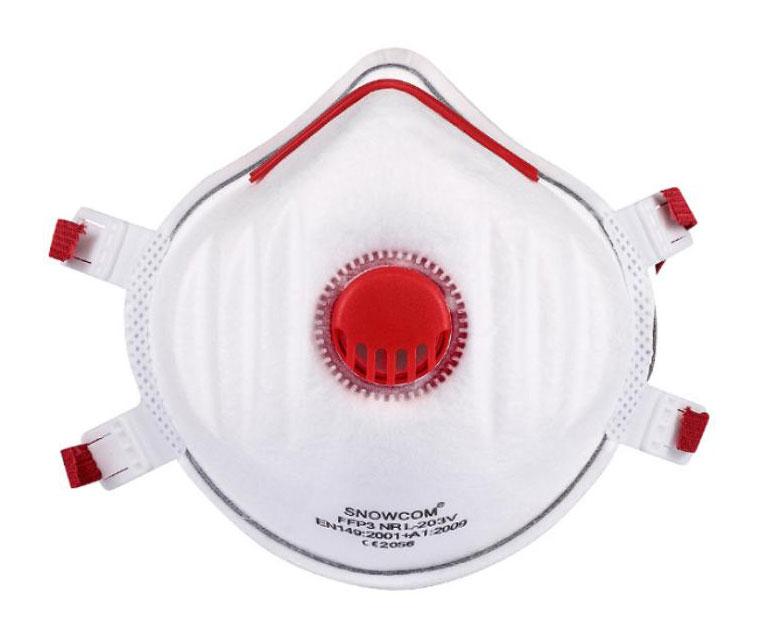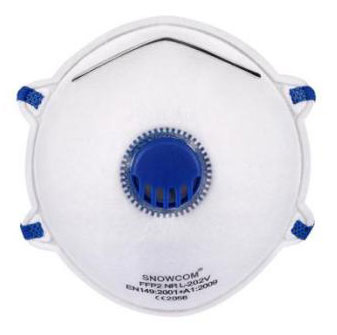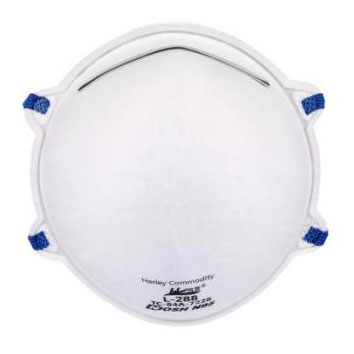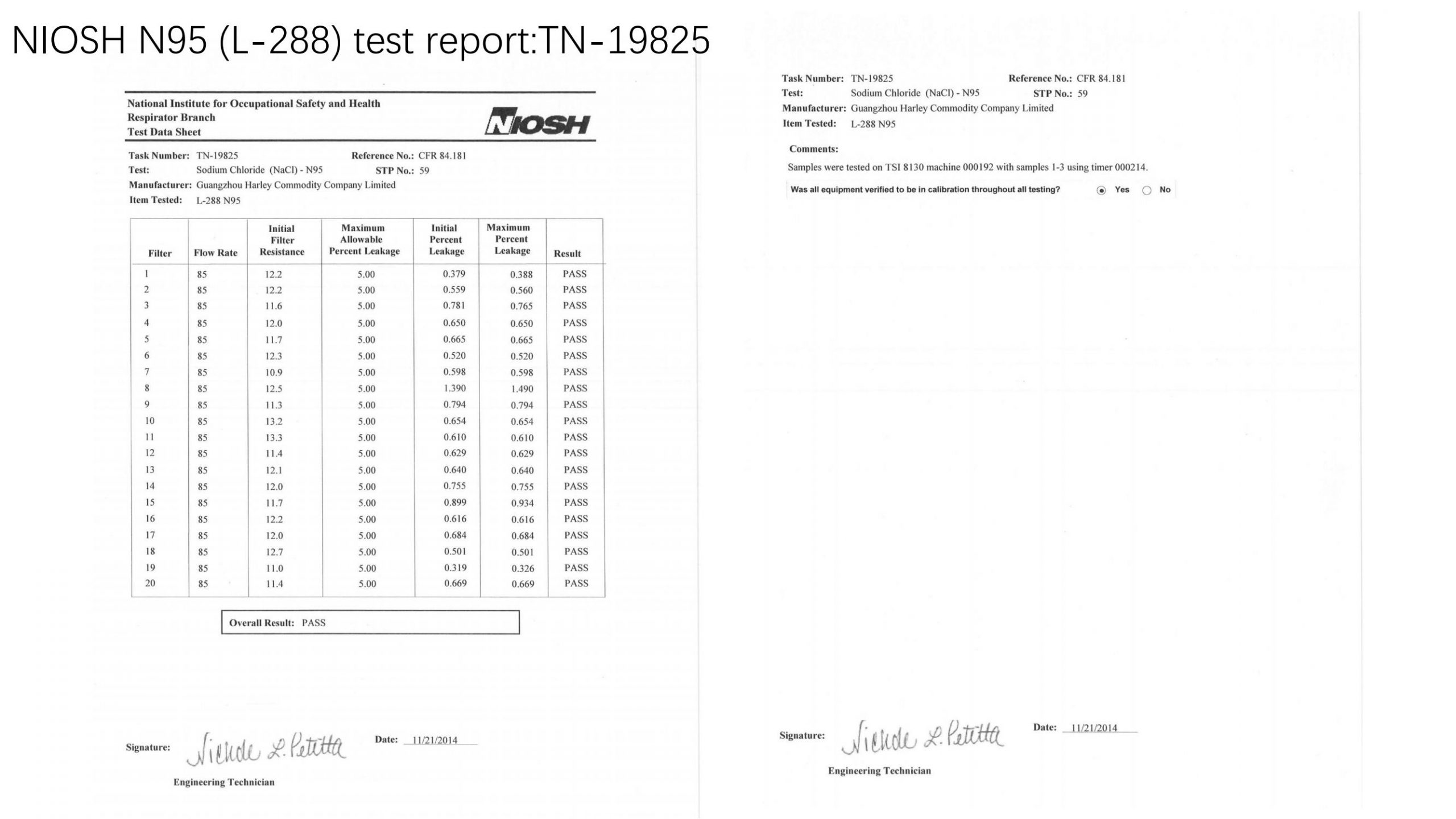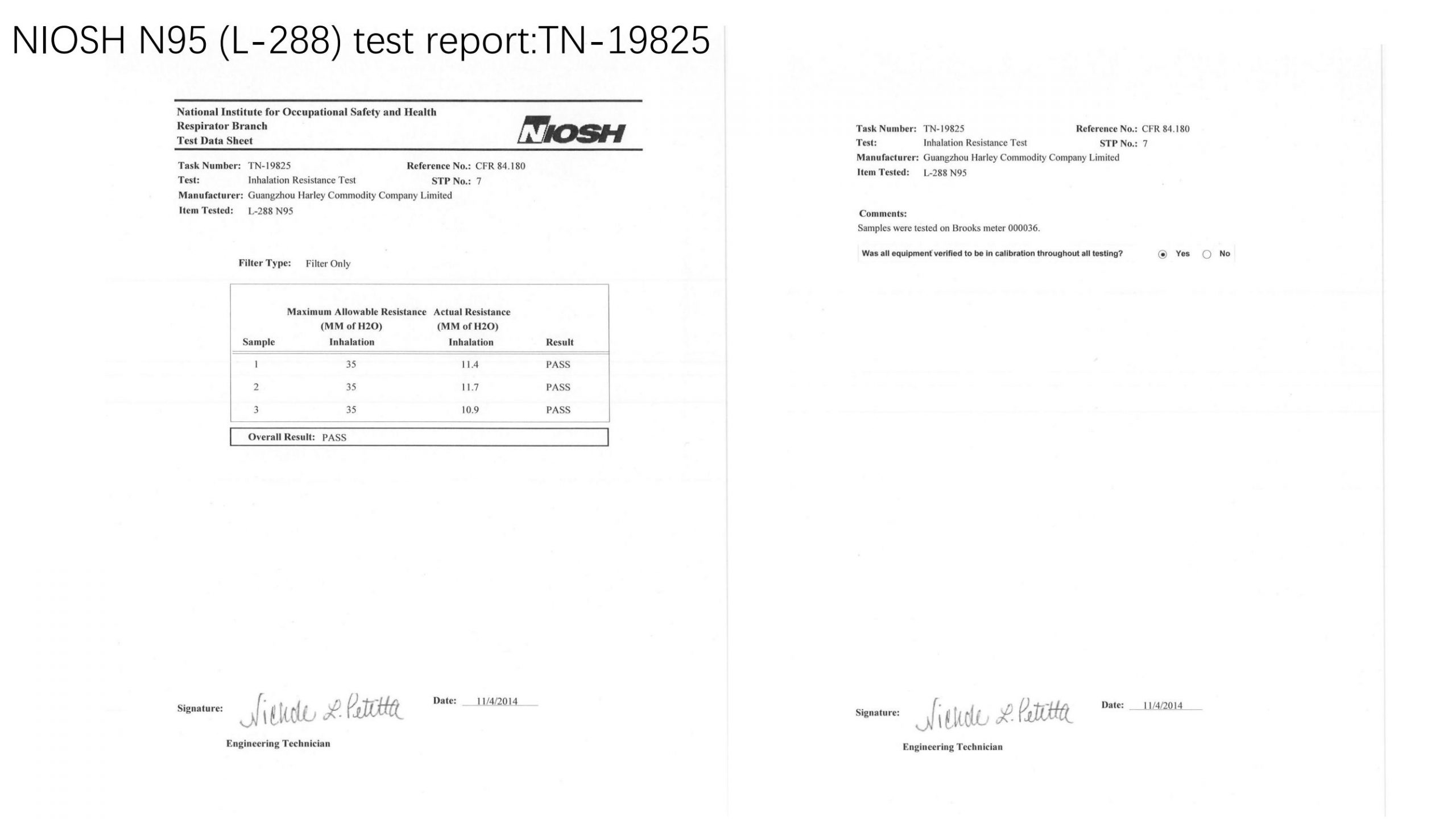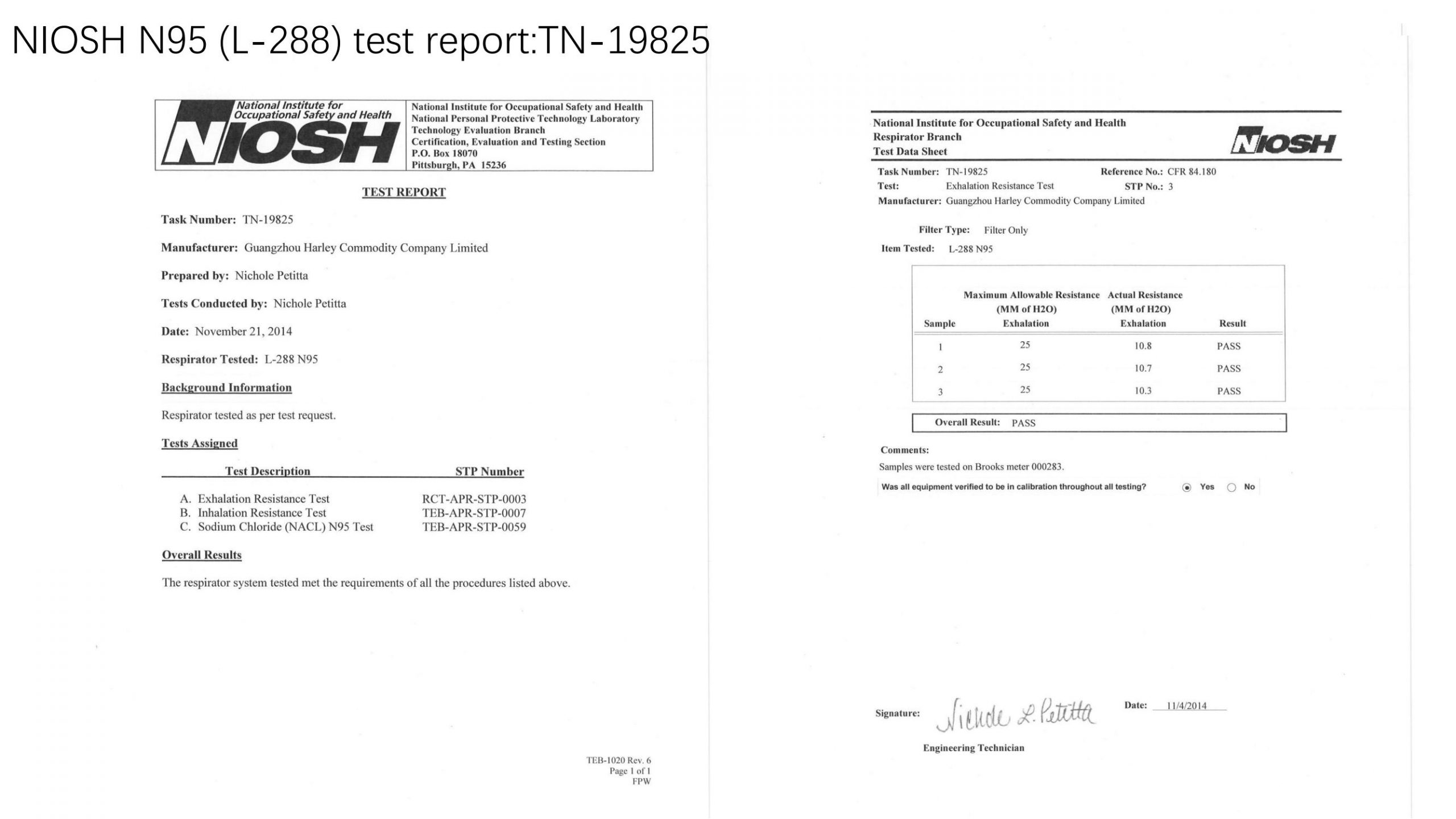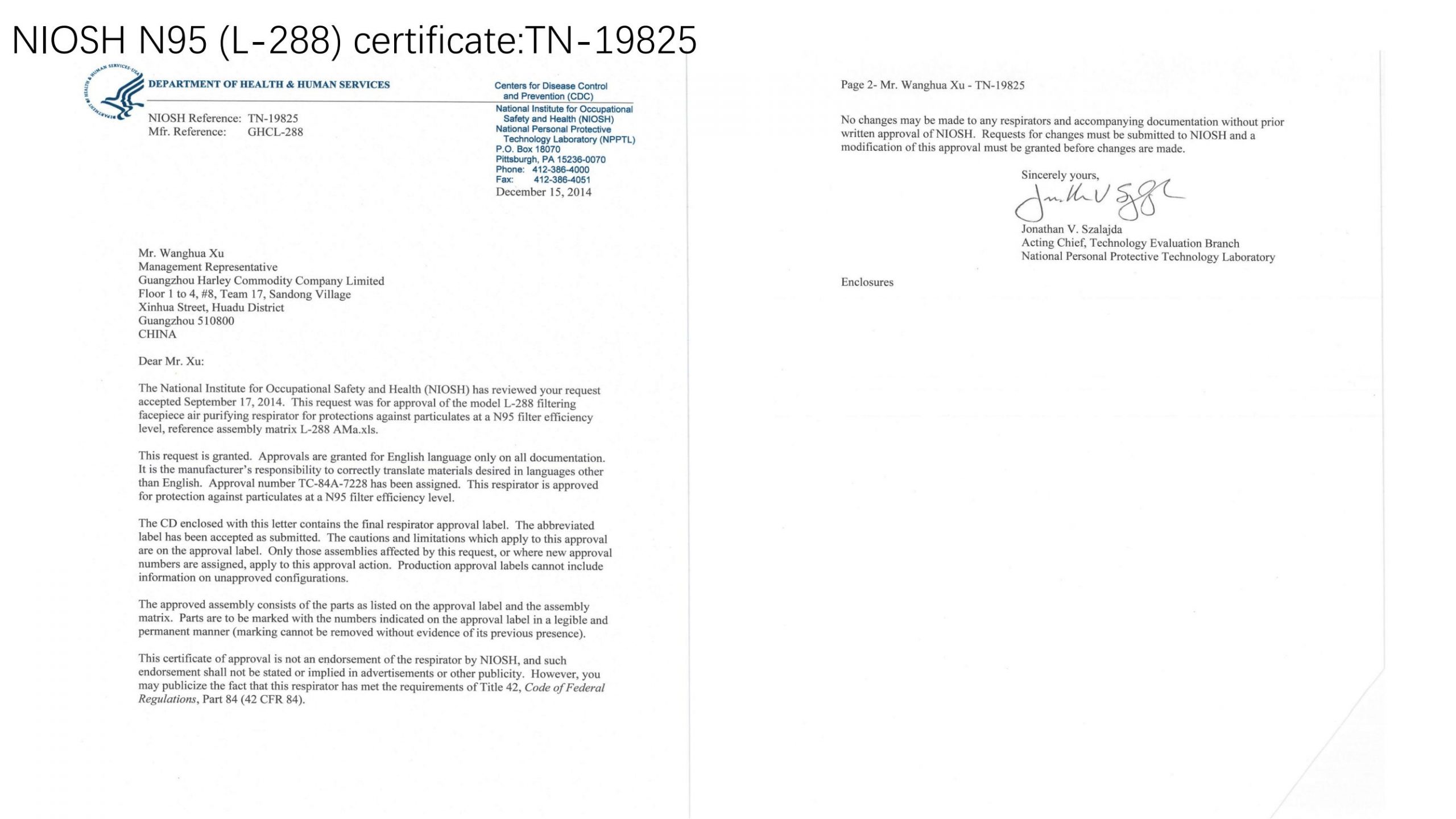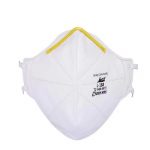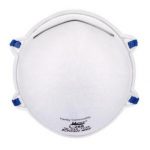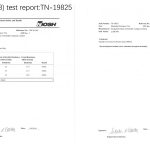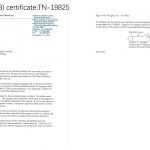Introduction of American standard and Chinese standard face masks
What Kind of Mask Do I Need?
Masks with greater filtering protection were hard to find early in the pandemic but are widely available now, so it’s a good time to upgrade if you haven’t already.
For people who spend an extended amount of time indoors with others at work or school, use public transportation or are unvaccinated, then a better face mask can provide a significant increase in protection.
“A cloth mask is better than nothing but it really doesn’t compare to the filtration of other mask styles,” said Dr. Brady. “An effective mask is crucial to protecting ourselves and others in our community during times when COVID-19 is spreading rapidly.”
How Often Should I Clean or Change My Mask?
According to the Oregon Health Authority, N95 and KN95 respirators can be worn for several hours a day for about a week before they need to be thrown away.
Respirators are made of material that won’t filter as well once it gets damp so don’t wash or clean your mask with disinfecting spray, which will reduce its effectiveness. If you’ve been in an area with a high risk of exposure to COVID-19 and want to reuse your mask, you can store it in a dry paper bag for about three days before you wear it again. Research published by the CDC found that’s how long it takes the virus that causes COVID-19 to die on surfaces. Laying your mask in the sun for a few hours will provide some additional disinfecting power.
If the mask becomes visibly dirty or no longer fits snugly against your face, it’s time to exchange it for a fresh one.
Surgical masks should be discarded after one use.
SHARE
A stack of clean cloth masks by the door has become a staple in many homes, making it easy to grab one on your way out. However the Centers for Disease Control & Prevention recently updated its information on masks, noting that N95, KN95, KF94 respirators offer more protection compared to loosely woven products like cloth masks.
As the omicron surge begins to wane and many states start easing mask mandates, face masks remain a powerful tool to prevent illness from COVID-19, especially for those who are immunocompromised or at high risk for severe disease or hospitalization.
“Choosing a mask with enhanced filtration is one of the best ways to protect yourself from the very transmissible Omicron variant,” said Adam Brady, MD, from Samaritan Infectious Disease who heads the Coronavirus Task Force at Samaritan.
N95 Respirators Provide Highest Level of Protection
According to the ACGIH Pandemic Response Task Force, an occupational and environmental health group, N95 respirators do the best job at filtering the air you breathe.
The chart below demonstrates how face masks with a higher filtering ability do a better job at preventing the spread of coronavirus.
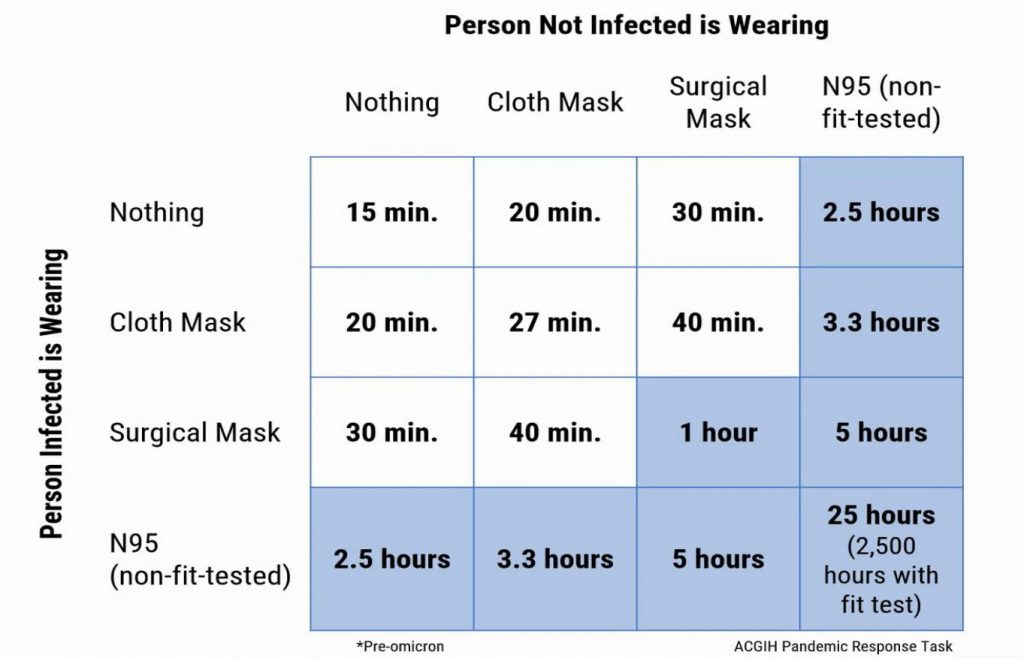
N95 and KN95
If both a person who is infected with COVID-19 and a person not infected are wearing N95 respirators, it theoretically would take 25 hours of exposure to transmit infection. If both are wearing tightly sealed N95 respirators that have been professionally fit tested, it would take 2,500 hours of exposure for the infection to transmit, according to ACGIH.
Respirator-style masks like N95s, KN95s and KF94s are designed to fit tightly against your face. This forces the air to go through the mask as you breathe rather than sneak in the sides or along the top and bottom, which can happen with loosely fitting masks. These masks are also made of material that filters out a higher number of particles than cloth or surgical masks, which minimizes your exposure.
Finding the Right Mask
To find the right mask, a good fit and breathability are two of the most important factors. Try different sizes, styles and brands if you are having trouble getting a good fit or feel lightheaded while wearing the mask.
CDC Updated Mask Guidance
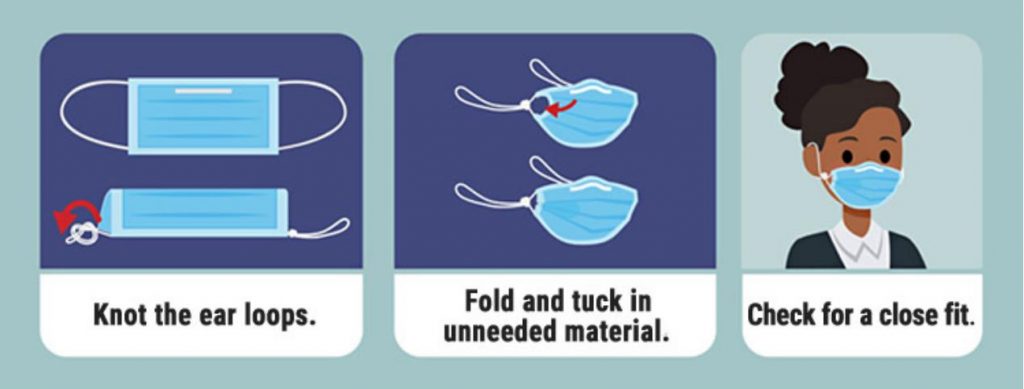 From CDC.gov
From CDC.gov
Best
N95 respirators are often used in occupations where there is particulate matter in the air, and will filter out at least 95% of airborne particulates including the coronavirus. These masks are rigorously tested to meet U.S. quality requirements set by the CDC’s National Institute for Occupational Safety and Health (NIOSH).
When you’re looking for an N95 respirator, some options may be stiff and hold their shape and some may be soft. Dr. Brady reported that either is fine as long as you can get a good fit.
To get a tight seal on an N95 respirator, ensure the straps are snug and use both hands to mold the nosepiece to your face. When you inhale and exhale you should not feel air moving near the edges of the mask along your nose, cheeks or chin.
In addition, be sure to select an N95 respirator that does not have an exhalation valve. N95 masks with an exhalation valve do offer good protection to you, but if you have COVID-19 the valve may allow some air you exhale to escape and could put others at risk.
If you are buying N95 respirators online, look for the following indicators that the mask is authentic:
- A NIOSH markon each mask that is easily visible and spelled correctly.
- An approval number that starts with “TC-84A” followed by four more numbers imprinted on the mask or head bands. Check to see if the mask is NIOSH-approved.
- Elastic bands that go around the head create a tighter seal and better protection. Most NIOSH-approved N95 masks do not have ear loops.
Good
KN95 respirators are made to meet Chinese quality requirements and are designed to filter at least 95% of airborne particles. The requirements are similar to those in the U.S. for N95 respirators, but there is less ongoing testing.
KN95 respirators are widely available and typically have ear loops and an adjustable nose band. They are soft and may fold in the middle. These masks are easy to find in stores and online, but check to make sure the product is authentic and the expiration date has not passed.
What to look for:
- KN95masks made after July 1, 2021, must be stamped with “GB-2626-2019.”
- KN95masks made prior to July 1, 2021, must be stamped with “GB-2626-2006.” The mask is still useable as long as the expiration date has not passed.
KF94 respirators are made to meet South Korea’s quality standards and are designed to filter at least 94% of airborne particles, but again, are tested less rigorously than those in the U.S. KF94 respirators look and function similarly to KN95 respirators but are less common.
A KN95 or KF94 respirator is usually the best option for young children as N95 respirators are designed to fit adults, not children.
Acceptable
A surgical mask or procedure mask provides better protection than a cloth mask alone. A cloth mask can be layered over a surgical mask for better filtration, but do not layer two surgical masks together. The CDC recommended knotting the ear loops on surgical masks to help provide a better fit if you notice gaps along your cheeks or chin.
From CDC.gov
To reflect the CDC’s updated masking information, visitors to Wintop must wear an N95, KN95, KF94 or surgical mask. Cloth masks, gaiters, bandanas or face shields are not allowed.
